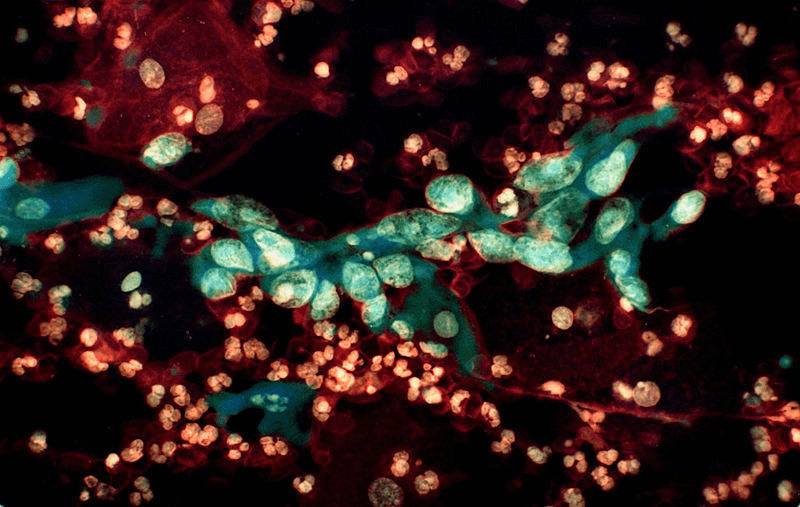Humans are that much closer to attaining disease immunity. Discovery of a mysterious protein, dubbed lymphocyte expansion molecule (LEM), showed that genetically mutated mice had ten times more cytotoxic CD8+ T cells than the average mouse. Further investigation into LEM revealed that the LEM protein regulates the rate of oxidative phosphorylation, a process that generates mitochondrial reactive oxygen species (ROS). ROS molecules are harmful in high amounts, but they are needed for the massive proliferation of T cells. T cells are a vital part of the adaptive immune system because they are directly responsible for killing the body’s infected cells during a viral invasion or abnormal cells, and since cancer cells are inherently damaged cells, T cells are able to recognize cancerous cells and mount an immune attack to destroy the cells before they can become more of a problem. Due to this obvious obstacle in cancer growth, most cancers like to down-regulate or stop the production of these highly effective killer T cells.
Image Source: Coneyl Jay
When mice with the over-expressed LEM gene become infected with a virus, the massive expansion of CD8+ T cells help the mice fight off infection much faster than normal mice. On top of their stronger immune defense against infections, the mice are also more resistant to cancer development and produced extra memory T cells, important for future recognition against the same infection. The discovery of the LEM molecule has opened a novel path in cancer research and cure because instead of treating cancer with drugs and chemotherapy, a possible therapy is to ramp up the production of natural CD8+ T cells in the afflicted person to enhance the immune defense. Furthermore, combination therapies such as immunotherapy, drugs, chemotherapy, and more can be used with LEM to have an additive effect in clearing cancers. The possibilities are endless!
Feature Image Source: Aviary: Cervical Cancer Histology, Inverted by rosefirerising










